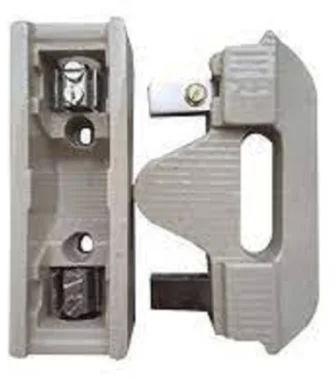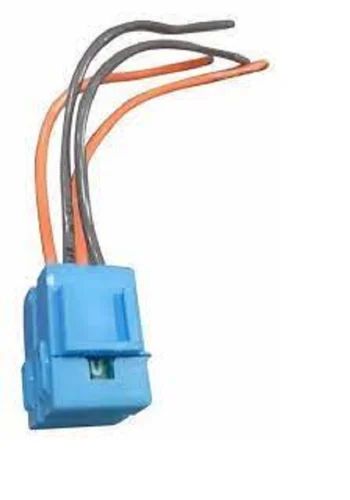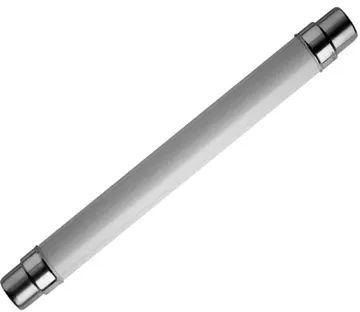- View Mobile Number
shrimadhavenggsales1@gmail.com
Industrial Fuse
Industrial fuses are indispensable components in electrical systems within industrial settings, designed to protect equipment and circuits from overcurrent conditions. Unlike their residential counterparts, industrial fuses are engineered to handle higher currents and voltages commonly encountered in industrial environments. Housed in robust enclosures made of materials like ceramic, glass, or high-strength plastics, industrial fuses are built to withstand the demanding conditions of industrial applications.
The fuse element within industrial fuses is carefully designed to handle specific current and voltage ratings, ensuring effective protection for valuable machinery, control systems, and other industrial equipment. Cartridge fuses, blade fuses, and high-speed fuses are common types used in industrial settings, each tailored to different applications and response times.Industrial fuse in India have been extremely useful.
The selection of industrial fuses involves consideration of factors such as rated current, voltage, and interrupting capacity. Proper coordination with other protective devices in the electrical system, such as circuit breakers, is essential to ensure a comprehensive and coordinated defence against overcurrent events.
Widely employed in manufacturing plants, refineries, and power generation facilities, industrial fuses play a pivotal role in safeguarding motors, transformers, control panels, and electronic devices from potential damage due to short circuits and overloads. Regular inspection, testing, and timely replacement of damaged or expired fuses are crucial to maintaining the safety and efficiency of industrial operations.Industrial fuse in India is very common and used in various industries.
In conclusion, industrial fuses are critical components that contribute to the reliability and safety of electrical systems in industrial environments. Their robust design, diverse types, and compatibility with higher currents and voltages make them essential for protecting valuable equipment and minimizing downtime caused by electrical faults. As industrial operations increasingly rely on sophisticated electrical systems, the role of industrial fuses becomes even more crucial in ensuring the continued functionality and integrity of industrial infrastructure.
| Business Type | Supplier, Trader |
| Voltage | 204V |
| Fuse Material | Cast Iron |
| Color | Grey |
| Application | Domestic Use |
| Country of Origin | India |
| Current Rating | 10A |
A Kit Kat fuse, also known as a knife blade fuse, is a type of electrical fuse designed for protecting low-voltage electrical circuits. The distinctive feature of the Kit Kat fuse is its blade-like construction, resembling the shape of a knife, which gives it its alternative name. These fuses are commonly used in residential and industrial applications to safeguard circuits from overcurrents that could potentially damage equipment or pose safety hazards. Take help of your Kit Kat fuse Trader for getting it installed.
The construction of a Kit Kat fuse typically consists of a porcelain or fibre-reinforced plastic base, with two conducting blades made of materials such as copper or aluminium. The blades are mounted parallel to each other and housed within the fuse carrier. The fuse carrier provides a means to insert or remove the fuse from the circuit easily. In the event of an overcurrent, the heat generated causes the fuse element to melt or break, interrupting the circuit and preventing further damage.
While traditional in design, Kit Kat fuses have evolved, and modern variations may include additional features such as indicator lights to signal a blown fuse. Regular inspection and testing are essential to ensure the continued reliability of Kit Kat fuses, and replacements should be made promptly if signs of wear or damage are detected.
In summary, the Kit Kat fuse remains a simple yet effective solution for protecting low-voltage electrical circuits. Its straightforward design, ease of use, and affordability make it a practical choice for a variety of applications, contributing to the safety and proper functioning of electrical systems in both residential and industrial settings. Make sure to purchase from a reputable Kit Kat fuse Trader.
| Business Type | Supplier, Trader |
| Material | Plastic |
| Application | Home Distribution Board |
| Voltage | 240V |
| Country of Origin | India |
| Power rating | 10A |
| Business Type | Supplier, Trader |
| Country of Origin | India |
| Voltage | 11kV |
| Usage/Application | For Voltage Transformer |
| Fuse Type | Transformer Protection |
| Current Rating | 1 Amp - 3.15 Amp |
| Material | Porcelain |
| Type | AVT |
Potential Transformer (PT) fuses are critical components in electrical systems, specifically designed to protect potential transformers from faults and overcurrent conditions. Potential transformers, also known as voltage transformers, play a crucial role in stepping down high voltage to a lower, more manageable level for monitoring and control. PT fuses act as a safeguard for these transformers, functioning as sacrificial elements in the electrical circuit.
Typically constructed as cartridge-type fuses, they consist of a fuse element enclosed in a protective housing. The fuse element is made of materials with specific current-carrying capacities, designed to melt or open when exposed to excessive current, effectively breaking the circuit and preventing damage to the potential transformer and connected equipment. Reputable PT fuse suppliers can provide high quality PT Fuse or transformers.
These fuses are characterized by specific voltage and current ratings, ensuring compatibility with the potential transformer and the broader electrical system. Their application is widespread in power distribution systems, substations, and industrial settings where potential transformers are integral to operations. Installed on the primary side of potential transformer circuits, PT fuses provide essential protection against overcurrent conditions, offering a vital layer of defence in electrical networks.
Regular testing and maintenance are paramount to ensuring the reliability of PT fuses. Periodic inspections help identify any signs of wear or damage, while routine testing verifies the fuse's ability to interrupt fault currents within specified parameters. This proactive approach contributes significantly to the overall reliability and safety of the electrical system. Moreover, adherence to industry standards and specifications is crucial, emphasizing the importance of selecting PT fuses from reputable manufacturers committed to compliance.
Proper installation is also fundamental for the effective operation of PT fuses, and when replacement is necessary, it is essential to use fuses with the correct specifications to ensure compatibility with the potential transformer and the overall system. In conclusion, PT fuses play a pivotal role in protecting potential transformers, contributing to the overall reliability and safety of electrical infrastructure. Their careful selection, installation, and maintenance are essential practices in ensuring optimal performance in diverse electrical applications. Working with reputable PT Fuse suppliers who prioritize compliance with industry standards further enhances the integrity of PT fuse applications in critical electrical systems.



